Behind the News
Behind the News: All the backstory of our major news this week
Published
12 months agoon

The week ending was eventful and filled with lots of major stories across the continent of Africa. This report is an expose of the background and the major issues behind the major stories we covered.
Arms supply allegation against South Africa in Ukraine War
South Africa’s relations with European giant, Russia were in the spotlight again as United States ambassador, Reuben Brigety accused the country of providing ammunition to Russia by ship.
Brigety said the US was sure that contrary to its public claim of being non-aligned in the Russia/Ukraine crisis, South Africa supplied arms to Vladimir Putin’s army.
Since the commencement of the war in February 2022, African governments have failed to forge a unified position on it as most abstained from the vote in the first and second resolutions of the United Nations demanding that Russia ceases fire.
Also, when the General Assembly voted overwhelmingly to suspend Russia from the UN Human Rights Council, 9 of the 24 “No” votes were African, with South Africa leading the defiant league.
South Africa remains a strong ally of Russia despite wide criticism by the global West, notably, the US. Putin is also scheduled to visit the African country for the BRICS Summit later this year.
Trial of Senegalese opposition leader, Ousmane Sonko
Senegalese opposition leader, Ousmane Sonko was in court again this week, this time receiving a higher sentence on appeal which could disqualify him from the next presidential elections.
The current legal travails of the politician started with the accusation of raping a beauty shop staffer while getting a massage but the politician has described the rape accusation as part of a scheme to torpedo his 2024 candidacy, claiming victim of a plot by President Macky Sall.
He was later accused of libel for accusing the tourism minister of embezzlement but denied wrongdoing. He has insisted that the case is part of a scheme to eliminate him from the presidential race.
The latest ruling, stiffer than the initial two months probation with supervision meted on him last month, puts his political future in doubt as he might be disqualified from running for the 2024 presidential elections if the ruling stands.
Meanwhile, he has called for “civil disobedience” and rallied his supporters for demonstrations, and some major streets in Senegal are currently in turmoil as part of the fallouts from the protest.
Zambia close to debt crisis resolution
Zambian President, Hakainde Hichilema met French President, Emmanuel Macron in Paris this week for talks over debt restructuring for the country.
Zambia was the first African country to default on its debt during the coronavirus pandemic as it opted to bow out of a $42.5 million Eurobond repayment in November 2020.
France and China are Zambia’s top lenders and terms for restructuring have been placed on the desk of the creditors by the International Monetary Fund (IMF).
The IMF last week also began the disbursement of the next batch of its $1.3 billion financing program to Zambia.
Nigeria’s Davido to launch docuseries
Nigerian hip-hop star, David Adeleke, popularly known as Davido, has announced the sensational release of his self-documentary series on the platform of global streaming giant, Netflix.
Davido recently dropped his smash album, Timeless, and hosted an eponymous concert for the album earlier this month. He made the announcement during an interview session with Dubai-based entertainment media platform, Esquire Middle East, where he is currently promoting the album.
Davido who lost a child in a pool accident last November, said in the interview, “I have a movie coming out in December with Netflix, It’s very, very big. This is the first time I’ve said anything about it, actually. It’s a documentary–a docu-series about my life, called ‘David’. I shouldn’t be talking about this, but yeah.”
Yaya Toure finally rubbishes ‘curse on Guardiola’ claim
Former Ivory Coast international, Yaya Toure during the week might have buried the age-long controversy with claims that he placed a curse on Manchester City manager, Pep Guardiola.
Toure commented after the news of the curse surfaced on the internet again this week as Manchester City faced Real Madrid in the UEFA Champions League.
“My former agent is being quoted by the media about a ‘curse’,” Toure wrote on Twitter.
“Please don’t associate me with these nonsense and lazy stereotypes about African curses!”
“Media… move on, please. This man does not represent me in any way. Amplifying these stereotypes is harmful.”
Toure had accused Guardiola of “having problems with African players wherever he goes” and said his coaching reputation was a “myth”. The pair fell out during Guardiola’s breakthrough season at Barcelona in the year 2008/2009 when he sold Toure to Manchester City after his first season with him. Their issue resurfaced after Guardiola was appointed manager of City years later, eventually forcing Toure out of his team for the second time.
You may like
-
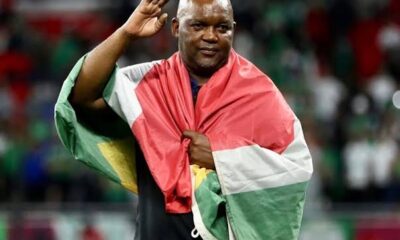

Domestic worker sues Pitso Mosimane, wife following debilitating injuries
-
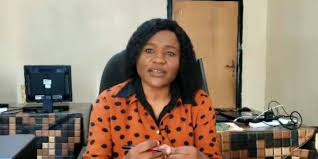

Media polarisation blamed for biased coverage, civil society leader calls for mindset shift
-
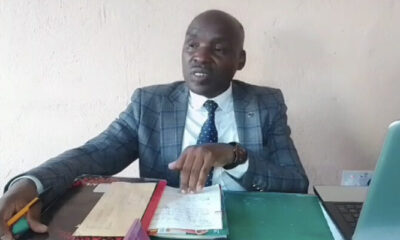

Luapula businessman, Munsanje, reflects on media freedoms and freedom of expression
-


Institute calls for responsible social media usage among youths
-
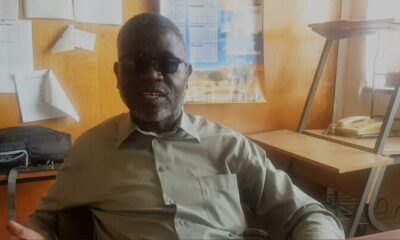

Digital Rights: Policy enthusiast, Jere, advocates self-regulation as alternative to govt regulations
-
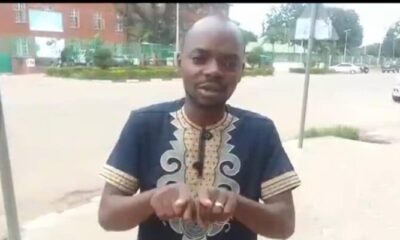

Sign language interpreter, Kunda, seeks inclusivity in media rights agenda
Behind the News
Behind the News: All the backstories to our major news this week
Published
4 days agoon
April 22, 2024
Over the past week, there were many important stories from around the African continent, and we served you some of the most topical ones. Here is a rundown of the backstories to some of the biggest news stories in Africa that we covered during the week:
Nigeria’s big feat against meningitis
Nigeria made a significant step in its fight against the World Health Organization (WHO) announced on Monday that Nigeria is the first country in the world to give out Men5CV, a “revolutionary” new vaccine. People are getting sick more in Nigeria than anywhere else in Africa. They say that the number of cases each year went up by 50% in 26 African countries that are known to have a high risk of meningitis.
Nigeria is the first country in the world to have given this vaccine which protects against five strains of the meningococcus bacteria. The Vaccine Alliance (Gavi) pays for the vaccine and emergency vaccination operations.
In Nigeria, between October 1, 2023, and March 11, 2024, there was an outbreak of Neisseria meningitidis (meningococcus) serogroup C that caused 1742 suspected cases of meningitis, 101 confirmed cases, and 153 deaths in seven of the country’s 36 states. These states were Adamawa, Bauchi, Gombe, Jigawa, Katsina, Yobe, and Zamfara.
Gavi also pays for the global meningitis vaccine stockpile and helps low-income countries get regular meningitis shots. Nigeria is one of 26 countries in Africa where meningitis is very common. It is in an area called the African Meningitis Belt. The number of meningitis cases reported each year in Africa rose by 50% last year.
Being a serious infection, meningitis makes the membranes (meninges) that cover the neurons in the brain and spinal cord swell up. Viral, bacterial, fungal, and parasite pathogens are some of the things that can cause meningitis. Headaches, fevers, and stiff neck are common signs. Bacterial meningitis is the worst kind. It can also lead to septicemia, which is blood poisoning, and people who get it can become severely disabled or die within 24 hours.
Besides Nigeria’s meningitis vaccine campaign, the international summit on meningitis in Paris will be a big step toward ending the disease as leaders will meet to celebrate progress, discuss problems, and decide what to do next.
Britain /Rwanda migration deal remains stuck
Rishi Sunak’s plans to send asylum seekers to Rwanda took another defeat this week when they were turned down again by the upper house of parliament in Britain. The parliament came up with changes that would slow down the policy but not stop it. The leader of the country thinks this will help his party win the next election.
Last year, the British government said it was going to send thousands of refugees back to the East African country. This was done to stop people from trying to get protection by crossing the English Channel in small boats from France. Part of an agreement worth £148 million is the idea.
Despite a Supreme Court’s ruling against the controversial move, Sunak has pushed to enact the law through parliament, praying that British courts should consider Rwanda a safe place to visit and that people should only be able to appeal in very rare situations. Europeans have become worried about people coming in illegally from the Middle East and Africa these days. As of June 2023, a record 45,000 people had flown in small boats across the English Channel.
Since Monday, when the House of Commons turned down the House of Lords’ second set of plans to change the new laws, they tried again. The House of Lords is Britain’s appointed upper house. But it’s not likely that the move will stop the bill from being passed this week. If it does, it will become law.
Ahead of the elections later this year, Sunak has put a lot of political capital into the Rwanda plan. He says it will help him keep his word to stop small boats carrying thousands of people who are trying to get into Britain illegally.
About 14.4% of the UK’s population, or 9.5 million people, were born outside of the UK in 2021. A record 45,000 people, mostly from France, crossed the English Channel in small boats last year. More than 11,000 people have been here so far this year. Getting rid of illegal immigration is one of Prime Minister Rishi Sunak’s top objectives.
Burkina Faso takes further steps from France
West African country, Burkina Faso has continued its diplomatic stance against former colonialist, France as it expelled three French diplomats allegedly being involved in actions against the government. The West African country, under military rule like five others in the subregion in a letter sent April 16 to the French embassy said that the three diplomats, two of whom were named as political advisers, were told they were not welcome in the country and had 48 hours to leave.
Sources quoted by Reuters said the officials were kicked out because they met with people from the public. There have been five coups in the area in the last three years. Most of them were linked to ties with France. The latest coup in Niger could make things harder for food markets in Nigeria and other West African countries, the World Bank said not long ago.
Around the world, rights groups, and other interest bodies claim that the junta restricts the freedom of speech and is scaring off critics while it tries to deal with a security crisis caused by rebels with ties to Iran and Al-Qaeda.
Last year, the government announced that it had suspended the 2018 military accord with France, though it still wanted support in the form of equipment. France deploys about 400 special forces soldiers in Burkina Faso, which the military government rules, but relations have deteriorated and tensions have soared in recent months.
Burkina Faso is one of the poorest in the world, and over the past ten years, a war that started in Mali and spread across the Sahel has killed thousands of people. People in the country are more against France now than they were a few months ago because they think that France’s armed presence has not made things safer, expelling its diplomatic might just be another low in their relations as the wave against the former European colonialists continues across the subregion.
Nigeria: ‘World beater’ Onakoya sets new chess record
Nigerian chess prodigy, Tunda Onakoya began an attempt at a 58 hours play of the game to surpass the world record of 56 hours, nine minutes, and 37 seconds, which was set by the Norwegian duo of Hallvard Haug Flatebø and Sjur Ferkingstad in 2018. Onakoya has broken the record set in 2018 by 56 hours. He also wants to raise $1 million for his charity, “Gift of Chess and Chess in Slums Africa,” which he has used to help vulnerable children in Africa.
For 60 hours straight, Onakoya played in Times Square in New York City to raise money for the schooling of poor children in Africa as he played from Wednesday morning until early Saturday morning, having been inspired by the huge number of people who wanted to see him succeed.
Within Nigeria, Onakoya is well known for starting the Chess in Slums project in 2018 in Ikorodu, which is on the outskirts of Lagos. Often outcast young people, many of whom don’t go to school and work to support their families, can learn to play chess at the organization with the country having one of the highest rates of child absence from school in the world, with more than 10 million kids of school age not going to school.
The Guinness Book of World Records has not yet confirmed the new record. This process can take up to two weeks. Whatever the case, Onakoya’s accomplishment has already had a big effect, showing that even from “corners of disadvantage,” big changes are possible.
Behind the News
Behind the News: All the backstories to our major news this week
Published
2 weeks agoon
April 14, 2024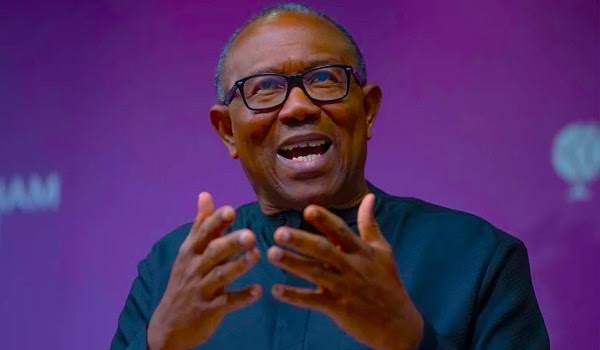
Over the past week, there were lots of important stories from around the African continent, and we served you some of the most topical ones.
Here is a rundown of the backstories to some of the biggest news in Africa that we covered during the week:
1. Nigeria, so rich, yet so poor: The sad tale of Africa’s sleeping giant
A few years ago, Nigeria was regarded as the giant of Africa in terms of the wealth deposits in the country and the potentials of becoming one of the richest countries in the world.
Apart from its vast human and capital resources, statistics have also revealed that Nigeria has well over 300 mineral resources deposited in every part of the country that could make the most populous black nation in the world one that others will look up to.
Many Nigerians have, over the years lamented the plundering of the Nigerian economy by successive administrations and thieving politicians who loot the country’s wealth and leave the nation in a very dire situation.
The latest to add his voice to the situation is the presidential candidate of the Labour Party (LP) in Nigeria’s 2013 general elections, Peter Obi, who, during the week, lamented the dwindling economy, hardship and poverty that Nigerians have been made to wallow in, especially since the coming of President Bola Tinubu on May 29, 2023.
The current administration has inadvertently plunged the nation into unbearable economic crisis with a majority of the masses finding it difficult to make ends meet.
Obi who expressed his disappointment at what the country is going through, emphasized that Nigeria
has no reason to be poor due to rich natural resources Nigeria is blessed with in every part of the country.
Obi made the assertion during a courtesy visit to the Emir of Zazzau, Ambassador Nuhu Bamali, at his palace in Kaduna State, northern Nigeria, bemoaned what he described as a waste of the vast arable lands in the country, especially in the North.
“Nigeria has nothing to do with poverty if those of us who are political leaders including my humble self had decided to serve the country faithfully,” the former Anambra State governor said while addressing the gathering.
“God created us with a lot of resources, and if those resources are properly put in place, we will pull most poor people out of poverty.
“The way things are in our country today requires that all of us must get involved in one way or the other.
“Because if we do, Nigeria will not have anything to do with poverty. I will always say this anytime I have the opportunity because Nigeria is one of the countries in the world that is blessed with everything that is required.
“The current socioeconomic instability in the country requires that all citizens and leaders come together and see how the situation could be salvaged,” he stressed.
2. ‘Never again!’ as Rwanda commemorates genocide’s 30th anniversary
Sunday, April 7, was a day of sober reflection for the eastern African nation of Rwanda as it marked the 30th years the devastating genocide that claimed more than 800,000 people, largely from the Tutsi ethnic group and moderate Hutus, in what has been described as one of the bloodiest massacres of the 20th century.
The killing spree in the tiny country lasted 100 days from April to July 1994 before the Rwandan Patriotic Front (RPF) rebel militia led by incumbent President Paul Kagame took the capital Kigali.
The genocide victims were shot, beaten or hacked to death in killings fuelled by vicious anti-Tutsi propaganda broadcast on TV and radio, with at least 250,000 women raped and sexually assaulted, according to UN figures.
But before then, the country had witnessed one of the worst cases of intra-nation violence which was was triggered by the assassination of Hutu President Juvenal Habyarimana on the night of April 6, when his plane was shot down over Kigali, which triggered the rampage by the Hutu extremists led military and the Interahamwe militia made up largely of Hutus.
However, the 30th anniversary of the genocide which was celebrated with solemn tributes to the victims, also saw a collective resolve that never again will the country experience such a devastating episode.
Since coming into power, Kagame has done everything to keep the country together and take away the memory of the genocide and aid its healing process.
Part of the measures instituted by the Kagame administration include no mention of ethnic groups on Rwandan ID cards, while secondary school students learn about the genocide as part of a tightly controlled curriculum.
Today, Rwanda had found its footing and has become one of the fastest developing countries in Africa with the western world falling over itself to do business with the country.
Since the end of the genocide and the assumption of office by Kagame, the president has pulled a tight string and every year, he keeps emphasising that there would never be a repeat of the sad incident that took the country to the brink.
3. One week, one trouble for Hichilema as alliance in popularity challenge
The outgone week saw another testament of Zambian President Hakainde Hichilema’s one week, one trouble after the coalition, the United Kwacha Alliance (UKA), challenged to test his popularity by conducting early presidential elections.
The coalition threw the challenge to Hichilema after the police declined its request to organise a public rally citing security concerns.
In a response, the alliance which believed they were denied what is constitutionally their fundamental rights, said if Hichilema thought he was popular with the masses, he should test such popularity by calling for an early election.
Reacting to the denial, the coalition, in a statement by its Chairman, Sakwiba Sikota, said it was not surprised at the response of the Zambian Police force which is controlled by the ruling UPND.
The alliance however, said it would not relent in its task of liberating the Zambian people from this repressive UPND regime.
The UKA also accused President Hichilema and the UPND of violating the rights of Zambians who don’t support their ineffective and short-lived government.
This new faceoff is one among a series of attacks and accusation levelled at Hichilema by opposition figures over his running of the government.
The Zambian President has come in for severe criticism with his style of leadership which is typical of the kind of politics being played by most African leaders who, more often than not, tend to change once they get into office.
Hichilema on his part, has not acted differently as he has also shown that his government is not different from what is obtained in most African nations.
while assuring that the UPND government could not stop the people’s movement.
4. Nigeria’s northern elders group pass vote of no confidence on President Tinubu
The current situation in Nigeria where the masses are reeling in unbearable hardship and poverty and a result of the policies of President Bola Tinubu, has forced a group of elders from the Northern region to pass a vote of no confidence in him.
The group of eminent political leaders and leaders of thought under the aegies of the Northern Elders Forum during the week, said it regretted campaigning for Tinubu and getting the people of the region to vote for him in the 2023 presidential election.
The Elders Forum, in a statement, said they deeply regret voting for Tinubu and vowed not to repeat mistake in 2027 which is the next general election cycle.
The eminent group of elders, in the statement issued by its spokesman, Abdul-Azeez Suleiman, said it is disappointment with the Tinubu administration, and would prioritize unity and consensus in selecting a candidate for the highest office in the land.
“The North made a mistake in voting Bola Tinubu to the presidency in 2023, and it is unlikely that they will repeat the same error in the future,” the Forum said.
“The North have learned from their past misstep and will strive to select a candidate who can unite the country and govern in the best interests of all Nigerians.
“Moving forward, the North will be more cautious in selecting a candidate for the presidency. They will prioritize someone who is seen as more inclusive, less controversial, and more aligned with the interests of all regions of the country.
“The mistake of supporting Tinubu in 2023 has taught them the importance of unity and consensus in selecting a candidate for the highest office in the land,” Suleiman reiterated.
The import of the threat by the Northern eldets is another clear sign of the disenchantment ordinary Nigerians have felt for President Tinubu despite his constant assurances that all his policies are meant to revamp the country’s economy and make life better for the people.
A vote of no confidence coming from elders of a region that accounts for the highest number of votes in Nigeria would definitely spell doom for the President in the next election and only a change of fortunes in the lives of the people can buck a change.
5. 10 years of schoolgirls’ abduction: Still no end in sight
Ten years ago, when the dreaded Boko Haram insurgents struck the Government Girls’ Secondary School in Chibok in Borno State and abducted 276 female students all in their early teens, many Nigerians did not believe that till now many of the girls will still be in captivity.
The government of then President Goodluck Jonathan promised to rescue the girls but a year later when it left power, they could not rescue all the girls.
Then came the regime of President Muhammadu Buhari and another round of promises rented the air. With his background as an accomplished Army General, it was a given that in no time, the girls would be rescued and reunited with their families.
But 10 years have gone by and about 89 of the victims are still missing. Many of them have been rescued, some have managed to escape while reports indicate that many of them have been married off to the terrorists and have become mothers.
And as Nigeria marks the 10th year commemoration of the abduction of the schoolgirls, there is no end in sight yet for the release of about 89 of the girls still remaining in captivity.
On this 10th year commemoration of their being in captivity, Nigerians are looking forward to the day the remaining girls, especially the poster girl of the abductees, Leah Sharibu, will be free and join up with their families and loved ones.
EDITOR’S PICK


Nigeria’s NGX Group enters into strategic investment partnership with Ethiopian Securities Exchange
Leading Nigerian integrated market infrastructure group in Africa, the Nigerian Exchange Group (NGX), has announced strategic investment in the Ethiopian...


Namibia govt condemns tourists posing naked on Big Daddy Dune
The Namibian authorities have frowned at tourists who posed naked at the Big Daddy Dune, the country’s top tourist attraction...


Domestic worker sues Pitso Mosimane, wife following debilitating injuries
Former Mamelodi Sundowns of South Africa and Al Ahli of Egypt coach, Pitso Mosimane, and his wife, Moira Tlhagale, have...


Media polarisation blamed for biased coverage, civil society leader calls for mindset shift
Chama Mwansa, Executive Director of the Chandarika Women and Youths Foundation, has attributed media biases to the similarities in coverage...


Nigeria: 118 prison inmates escape after rainstorm destroys facility
At least 118 inmates of the Medium Security Custodial Centre in Suleja, Niger State, in northern Nigeria, have reportedly escaped...


Tanzania’s auto-tech startup Spana is simplifying car maintenance— CEO
Tanzania’s auto-tech startup, Spana, has developed a mobile application for a bouquet of automobile services, enabling individual car owners and...


Nollywood thrown into mourning as another veteran actor Zulu Adigwe passes on
The Nigerian movie industry, popularly known as Nollywood, has once again been thrown into mourning with the death of veteran...


Zambian FA boss, Gen.Sec arrested over alleged laundering of K341,902
President of the Football Association of Zambia (FAZ), Andrew Kamanga, has been arrested along with the Secretary-General and two other...


Luapula businessman, Munsanje, reflects on media freedoms and freedom of expression
As stakeholder engagement intensifies regarding the ongoing project to amplify voices on media freedom, freedom of expression, and digital rights,...
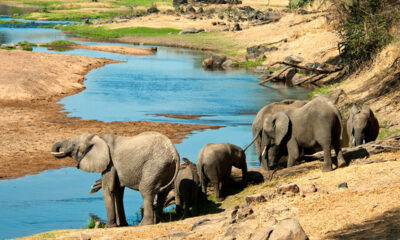

World Bank stops tourism fund to Tanzania’s Ruaha park. Here’s why
A spokesperson for the World Bank said on Wednesday that the lender had stopped all new payments from a $150...
Trending
-
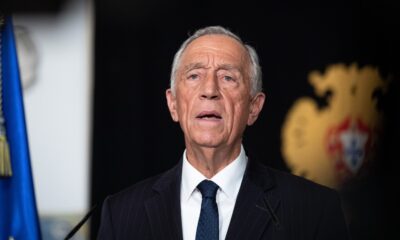
 Musings From Abroad2 days ago
Musings From Abroad2 days agoPresident de Sousa insists Portugal must ‘pay costs’ of slavery, colonial crimes
-

 Tech2 days ago
Tech2 days agoTanzania’s auto-tech startup Spana is simplifying car maintenance— CEO
-

 Culture2 days ago
Culture2 days agoNollywood thrown into mourning as another veteran actor Zulu Adigwe passes on
-

 Politics2 days ago
Politics2 days agoDigital Rights: Policy enthusiast, Jere, advocates self-regulation as alternative to govt regulations


